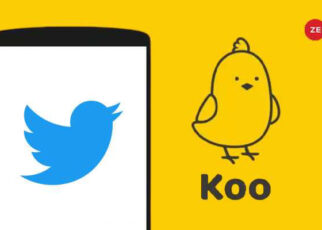In a surprising turn of events, the Indian social media platform Koo, once seen as a formidable rival to Elon Musk’s X, is shutting down. This decision follows the collapse of acquisition talks with Dailyhunt, an internet media startup valued at $5 billion.
Despite securing over $60 million in funding from heavyweight investors like Accel and Tiger Global, Koo faced insurmountable challenges. The platform struggled to expand its user base and generate substantial revenue over the past two years, ultimately leading to its downfall.
Earlier this year, it was reported that Koo was in discussions with Dailyhunt for a potential sale. However, these talks did not lead to a deal. Koo founders Aprameya Radhakrishna and Mayank Bidawatka confirmed this setback on LinkedIn, stating, “We explored partnerships with multiple larger internet companies, conglomerates and media houses but these talks didn’t yield the outcome we wanted. Most of them didn’t want to deal with user generated content and the wild nature of a social media company.”
Koo aimed to carve a niche in India by providing a platform where users could express themselves in multiple local languages, similar to X. The platform gained traction during a period of conflict between Twitter and the Indian government, positioning itself as a more compliant alternative and attracting several high-profile politicians.
The tension between Twitter and the Indian government erupted when Twitter resisted the government’s opaque requests for content removal. This conflict reached a peak when Twitter co-founder Jack Dorsey alleged that the Indian government had threatened to shut down Twitter in India and raid its employees’ homes, a claim the government denied. During this period, Koo’s pledge to adhere to local regulations resonated with many Indian politicians, though not with the opposition party. Koo even expanded its reach to Brazil, signaling its ambition to grow beyond Indian borders.
However, the prolonged funding winter that has affected startups globally was particularly harsh on Koo. The founders admitted that the financial pressures to scale revenue and improve finances were too great to overcome. “The prolonged funding winter got the better of us,” they stated.
Koo’s closure highlights a broader challenge for Indian entrepreneurs and investors: creating successful homegrown alternatives to popular platforms like Facebook, Instagram, Twitter, WhatsApp, and YouTube. Despite the enthusiasm and significant investments, these efforts have often fallen short. American tech giants continue to demonstrate superior capability in serving even the most diverse segments of the Indian market.
The demise of Koo serves as a poignant reminder of the difficulties faced by indigenous platforms in competing with well-established global giants. It underscores the need for more robust strategies and perhaps a reevaluation of the approach to building and sustaining social media platforms in the Indian context. As the dust settles on Koo’s closure, the tech community will undoubtedly reflect on the lessons learned and consider the future of homegrown digital ventures in India.





